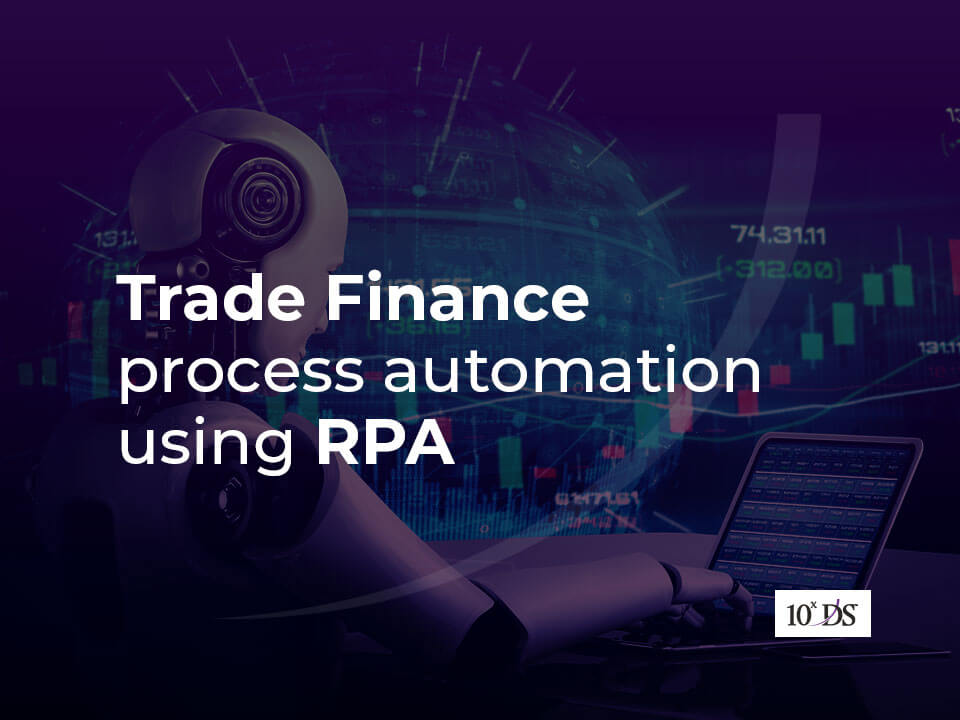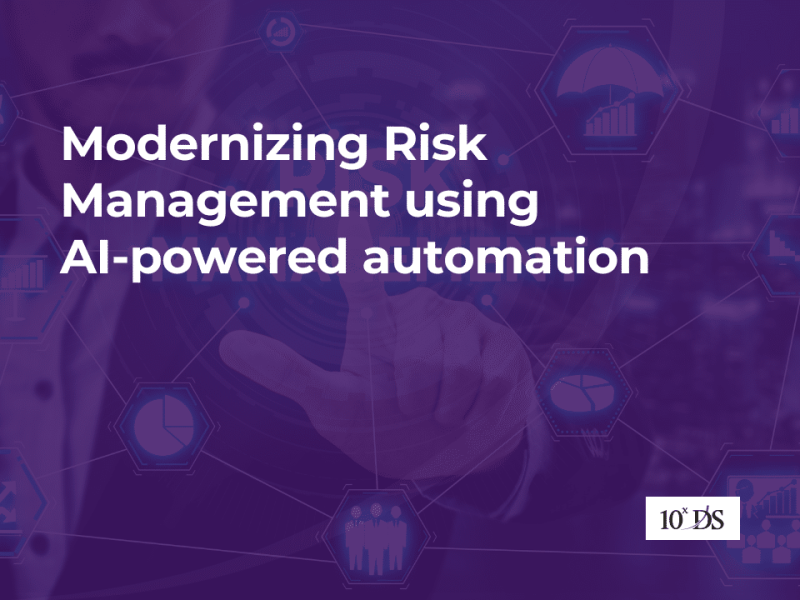
Trade Finance Process Automation using RPA
One of the most important factors in the relationship between banks and corporates is financing global trade. Even though the margins in the business are very less, the expected trade flows are quite huge and banks have identified Trade Finance as one of the crucial factors that will drive their future business growth. But, to gain a competitive advantage in the multipart environment of Trade Finance, banks must not only project themselves as leaders in digitization but also complement this with automated processing and exhaustive audit features.
While the digitization of Trade Finance is challenging, banks and corporates can overcome this by combining Robotic Process Automation (RPA) along with AI and Machine Learning.
Challenges in optimizing Trade Finance Processing
The following are the major challenges in optimizing Trade Finance Processing:
1. Rigid Business Model
The existing model where the bank owns the end-to-end value chain limits the banks from acquiring new clients and expanding their products and services. In addition to this, Fintech platforms provide innovative solutions to clients, reducing intermediation between themselves and the banks.
2. Manually Intensive Processes
There is a widespread use of paper-based documents throughout the lifecycle of Trade Finance and across the various parties involved. The verification of documents and inputs are done mostly in a manual manner. All of this leads to the increased turnaround time for the transactions, higher handling and storage costs, higher error rates due to manual verification of documents.
3. Regulatory and Compliance Constraints
The Trade Finance process is subject to many trade regulations which must be manually verified for compliance, and -this is costly. The reporting processes and formats of the ad hoc transactions are non-standardized making it difficult from a regulatory perspective.
4. Poorly Integrated and Obsolete IT Systems
The legacy systems involved are obsolete and are disintegrated resulting in manual handoffs. As a result, there is a breakage in the process and complexity in the tracking which would entail reconciliation of data across systems.
The need for RPA in Trade Finance
The Trade Finance process has primarily 4 high-Level steps before the final payment or settlement is made. Leveraging Machine Learning (ML) and Intelligent OCR with RPA in each of these steps can yield significant benefits in the overall process:
1. Extraction of Data
Banks receive unstructured data as Fax, physical documents and email attachments as part of the Trade documents such as scanned transport documents and Invoices. The process steps in Core Banking and other applications required as part of data extraction are executed using RPA. These documents are digitized and then by using Intelligent OCR the data are provided as input to the banking workflow systems as a combined data set.
2. Verification of Terms and conditions
The buyer’s details are then validated using RPA together with AI and Machine Learning across multiple banking applications with the important clauses including the terms and conditions and the credit limit is adhered to before proceeding to the AML/FCC and sanction checks.
3. Compliance Checks related to AML, FCC and Sanctions
Trade Finance involves a variety of compliance checks since global trade itself is fraught with risks and is highly regulated. The compliance process involves intense scrutiny amongst other things like anti-money laundering (AML) verification, financial crime compliance (FCC). These processes involve a series of validations such as verifying the transaction details against a customer’s nature of business, bill amount against the trade contract, signatures, and the bank’s charge collections.
While steps during pre-processing are deterministic and rule-based, they can be automated using RPA, since the judgmental processing steps, such as validating compliance to Uniform Custom and Practice for Documentary Credit (UCP) rules, legality, and terms matching, remain very labour-Intensive. Machine Learning is also used to do sanction checks by the Advising Bank/Seller’s bank after ensuring that there is no suspicious activity and verifying the Letter of Credit (LC) from the issuing bank is genuine. AI-enhanced ML can help to analyse data, derive insights, recognize patterns, predict outcomes and identify false positives thereby streamlining Trade Finance operations.
4. Input Supplier Details and Transfer Funds
The semi-structured and unstructured details from the documents received by the issuing bank are extracted using Intelligent OCR. The documents are then verified for compliance based on judgement and decision-making steps using ML based on data in underlying applications. Once the documents are found to be compliant, using RPA, an auto-notification email is sent from the issuing bank to the buyer notifying about the same and the necessary transactions are performed through the bank payment system to transfer the funds to the supplier.
Conclusion
10xDS has helped banks automate pre-processing activities of Trade Finance like extracting data from application forms, invoices and transport documents, automating workflow and in processing steps such as validating the terms and conditions such as anti-Money laundering (AML), financial crime compliance (FCC) and sanction checks. In addition to that, we have also helped in capturing the payment details in the banking application before it gets authorized. In addition to helping our clients reduce up to 50% of their FTE costs, we were also able to significantly reduce the manual errors thereby helping them meet the compliance targets.
We have successfully deployed RPA solutions in Dubai and around the world and helped enterprises drive digital transformation. If you are looking for help to automate Trade Finance Processing, talk to our experts.


